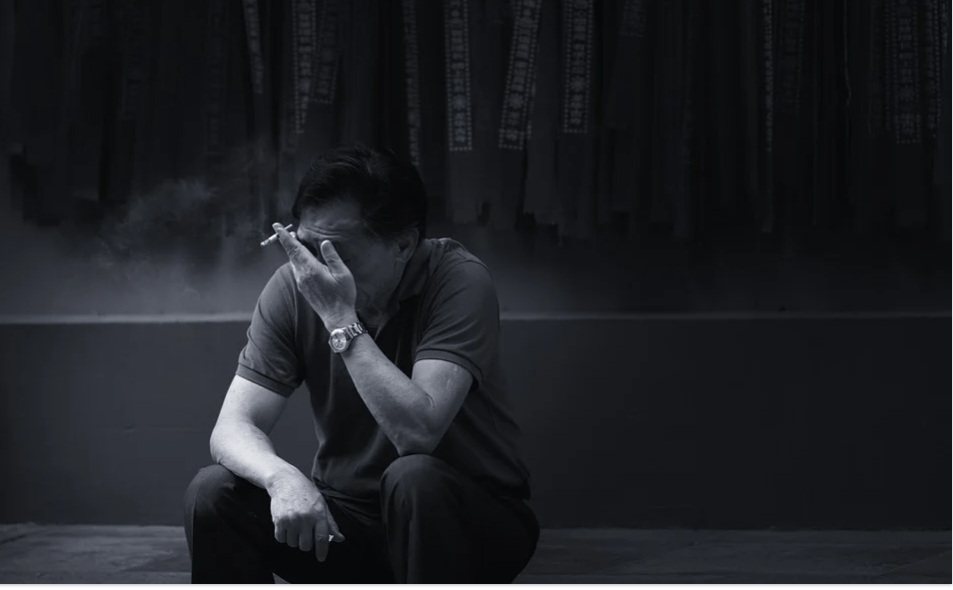REACHING YOUR BOILING POINT – ERIC OWEN
In this podcast episode, Eric Owens takes Greg Washington through the process of struggling with trauma from combat experience.
Owens talks about attempting to bottle up the trauma inside until he hits a point where he couldn’t pretend all was fine anymore, committing to getting help. This is reaching the Boiling Point.
Eric Owens had a deployment in Iraq, supporting Operation Iraqi Freedom from August 2007 to October 2008.
He served in varying capacities, including an infantry lieutenant, leading an infantry platoon with 4 Stryker Armored Vehicles, 43 personnel, and other equipment whose value shot above $10 million.
The trauma of losing a soldier
As a military leader entrusted with your soldiers’ lives, it feels bad losing your men in combat. While in action in Iraq from around August 2007, Owens’ team suffered a significant amount of casualties.
Some of such mishaps were triggered by operational errors, culminating in severe losses of personnel and equipment.
Being the leader, Owens assumed responsibility for some of these failures, effectively blaming himself for the lives lost under his command.

In his Iraqi deployment, a string of mishaps caused him to be moved from an infantry leader to a battalion staff. This was demeaning for Owens, a massive blow for a perfectionist like Owens, who was passionate about making a point of excellence.
Eric Owens struggled with the trauma from the unsettling scenarios he had been exposed to in combat. This degenerated into vivid nightmares where he relived some of the scenes where he lost a beloved soldier.
But despite this heightening internal tension, Owens projected an image of calm and normalcy on the outside. Such pretense was not out of place as admitting to being traumatized in the infantry (famed for resilience and strength) was easily mistaken for weakness.
Airing it out
One of the best ways to deal with grief is airing it out to an external party – precisely an empathetic individual that reasonably understands what you are going through.
For Eric Owens, he had to open up to his dad when he went on leave from deployment in Iraq. Being in law enforcement too, his father was empathetic, opening up as well on how he (Owens’) father struggles with nightmares.
Upon hearing this, Eric Owens felt considerable relief, reinvigorated with that feeling of not being alone in the trauma. Airing it all to his understanding father helped because infantry soldiers being symbolic of toughness, largely feigned being impregnable to trauma.
Tapping into this consequent mental relief, Eric Owens took more energy back to Iraq, where he was eventually restored to a platoon leader. Effectively, Owens finished his deployment in Iraq on a high.
A transition too quick to cope with
In most cases, soldiers struggle to transition from combat situations to normalcy (in terms of a calm life or civilian societies). This is because of the rapid change in the environment.
Effectively, soldiers can be moved from rough combat conditions within just hours (say via air flight), and they are expected to mentally and behaviorally readjust quickly.
This is not always feasible, as we see in the case of Eric Owens when he was moved to Germany from Iraq.
The tranquil environment in Germany was a sharp deviation from the particularly strenuous combat world of Iraq. Eric Owens had already being used to that: the screeching sounds of generators, strikers going in and out, aircraft flying, noisy air conditioners.
Struggling to transition back to normal life in the quietness of Germany, Eric Owens’ trauma resurged. With no active engagements, the guilt, nightmares came rushing back.

Consequently, Eric resorted to negative disruptive behaviors like heavy drinking to try to distract himself. But with every gulped pint of beer, he felt himself lose a huge slice of his true personality.
Reaching his boiling point
Within Eric, he knew such negative coping behavior was actually harming him. Deciding he has reached a point of no return, Eric Owens summoned the courage to ask for help.
Sourcing uncommon resolution (and a supposed breach of protocols), Eric confronts his superior and asks for help. Duly, he was granted the time to fix himself up.
Allow yourself to be helped
According to Eric, when seeking help, you have to deliberately allow yourself to be helped. It is important to open up completely. It would be best if you were vulnerable and meek.
Being on the defensive, keeping some details off, and attempting to put up a front of infallibility will not really help. When Eric was being counseled, he made himself vulnerable by pouring out all his weaknesses.
Best CBD Oil for Anxiety and Depression
He didn’t try to still appear like the tough guy, giving up the acting for once. This was extremely helpful because the counselor could extensively touch on his pain points and address them.
Also, by unloading it all, Eric could get the guilt and pain off his chest, launching him on a sustainable way to recovery.
Looking for ways to overcome trauma or grief? Our culturally-sensitive coaches and counselors are available to recommend effective solutions tailored to your specific needs.

